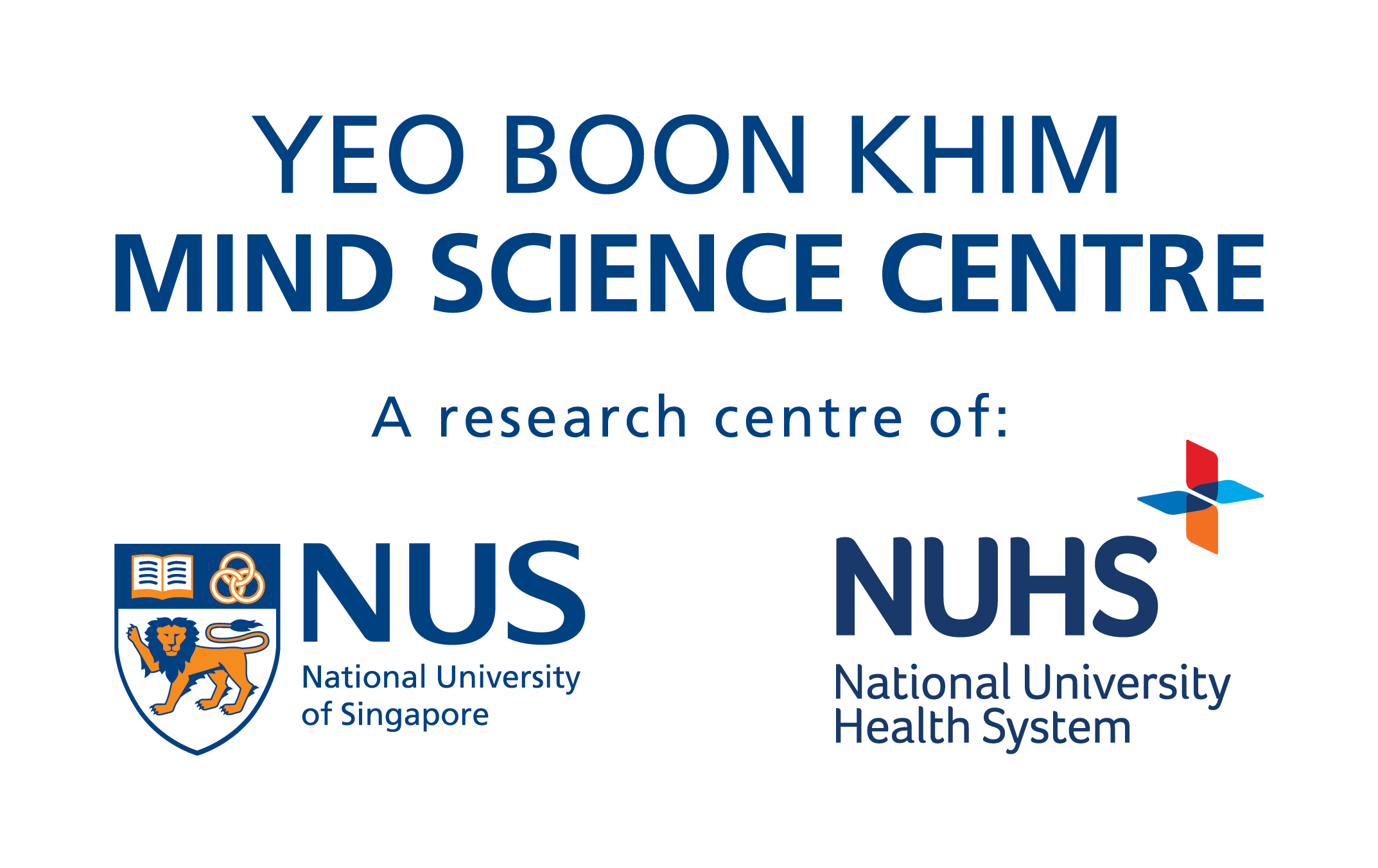Recap
How to Organise an Age Well Everyday Programme in Your Community: Webinar Recap
Published on 21 August 2025
This article is a recap of the 7th Living with Dementia Webinar Series on 6 August 2025, which focused on “How to Organise an Age Well Everyday Programme in Your Community”.
Key Highlights at a Glance
- The Age Well Everyday (AWE) programme grew out of the Jurong Ageing Study (JAS), translating research on dementia prevention into community practice.
- AWE promotes holistic ageing through physical activity, mindfulness, health education and social connection.
- Case studies from Kong Meng San Phor Kark See Monastery and RSVP Singapore showcase how AWE can be successfully implemented and scaled.
- The programme is volunteer-driven. Volunteers are central to AWE’s success, with structured training and gradual transfer of leadership to the community.
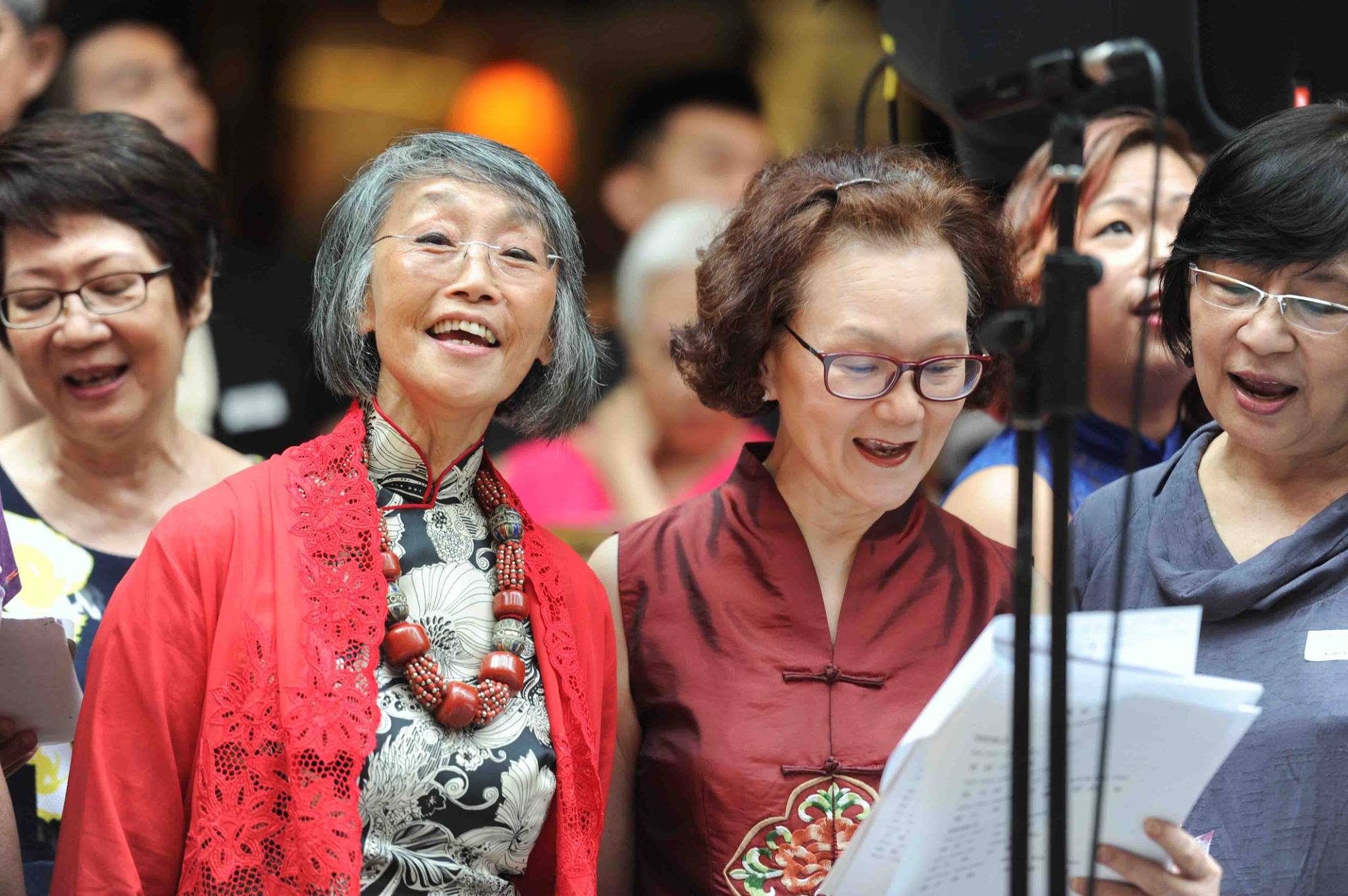
Participants of the Jurong Ageing Study (JAS) performing choral singing at Jurong Point. The study supports the role of choral singing in enhancing cognitive health among older adults. Read more
What is the Age Well Everyday (AWE) Programme?
From Research to Community Impact
The Age Well Everyday (AWE) programme, developed by the NUS Yeo Boon Khim Mind Science Centre (MSC) , originated from the Jurong Ageing Study (JAS), a 10-year research project which began in 2012. It first took shape as the Dementia Prevention Programme, focusing on psychosocial interventions to help community-living seniors delay or prevent dementia.
The idea was sparked by Emeritus Professor Kua Ee Heok, Associate Professor Goh Lee Gan, Dr Rathi Mahendran and Mrs Wee Geok Hua. Together with like-minded researchers and generous philanthropists, they translated findings from JAS into a rolling community programme. The vision was simple yet profound: to help seniors engage in active ageing and possibly prevent dementia through accessible, evidence-based community activities.
To encourage wider participation and reduce the stigma surrounding the word “dementia”, the initiative was rebranded as the Age Well Everyday (AWE) programme in 2017.
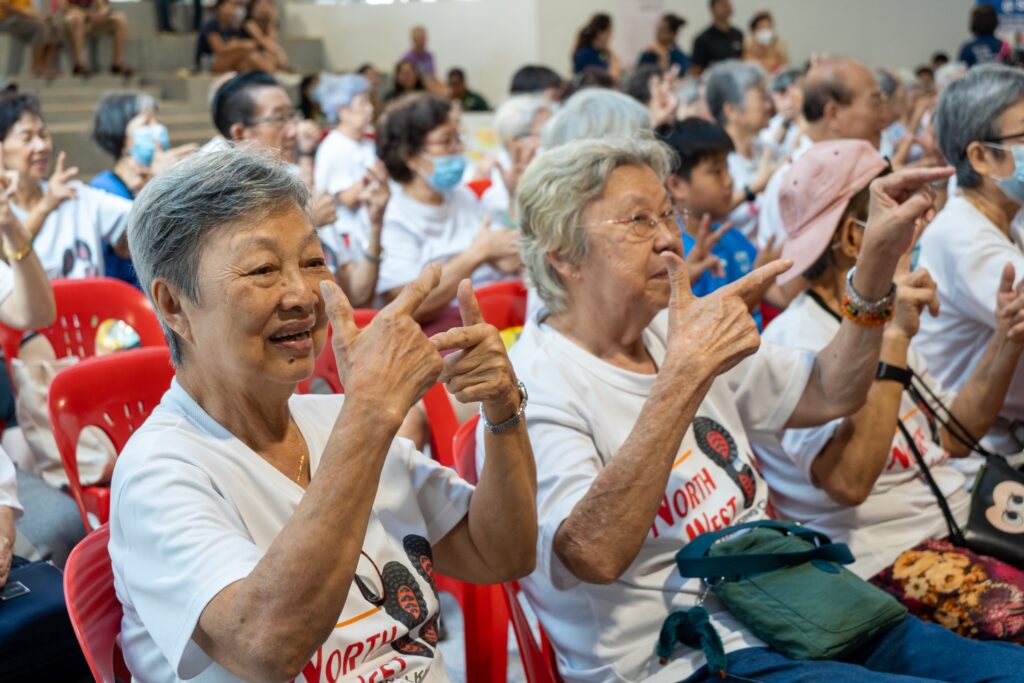
Seniors engaging in cognitive activities at the launch of the first Age Well Everyday (AWE) Club, Clementi Meadows, Clementi Avenue 4. Read more
Programme Format
AWE promotes healthy ageing through a holistic approach that combines physical fitness, mental stimulation and social engagement.
- Weekly Sessions: Each session lasts 60 minutes, with 30 minutes of physical activity (e.g., Tai Chi, meridian exercises) followed by 30 minutes of contemplative activity (e.g., mindfulness practice, music reminiscence, horticultural therapy, or art therapy).
- Health Education: Monthly talks enrich the programme, equipping seniors with practical knowledge for wellbeing.
- E-Learning (available in English and Mandarin): Seniors have the option to access e-learning modules on depression, stroke, dementia, caregiving and lifestyle management at their own pace. For volunteers, completing the e-learning is a required step, the Teaching and Facilitation’ module equips them with the skills to lead AWE sessions safely and effectively.
Evolving with the Times
Over the years, AWE has continued to evolve in line with new research. In 2024, Clementi Meadows became the first official AWE Club. Building on the work of its pioneers, the AWE Club now incorporates updated physical and cognitive activities, while staying true to the spirit of the original Dementia Prevention Programme.
The Science Behind AWE: Insights from the Jurong Ageing Study
The foundation of AWE lies in the Jurong Ageing Study (JAS), a 10-year research project that examined how psychosocial interventions could support mental health and cognitive resilience in older adults.
Activities studied included:
- Mindfulness Awareness Practice (MAP)
- Art and Music Therapy with Reminiscence
- Horticultural Therapy
- Choral Singing
- Chinese Ink Painting
Over five years, dementia prevalence was just 2.9 per cent among participants compared to higher rates in the general population. Depression was also significantly reduced, at only 4.4 per cent. These results were pivotal in shaping AWE’s five holistic pillars: physical health, cognitive wellbeing, social connection, mindful awareness practice and health education.
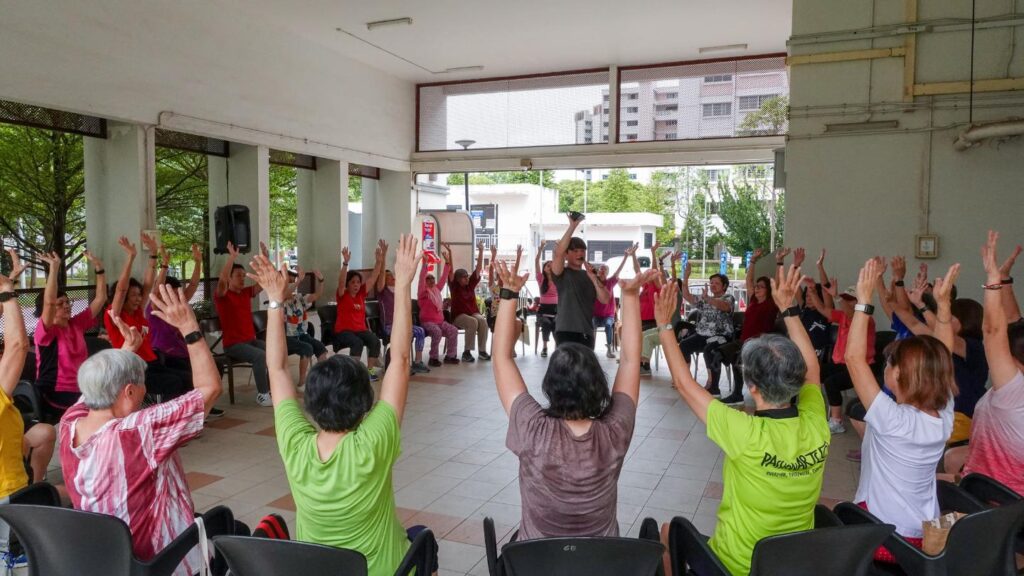
AWE Trainer Shaun Low leading physical exercises with seniors at the active ageing centre. Each session lasts for 30 minutes and incorporates cognitive activities.
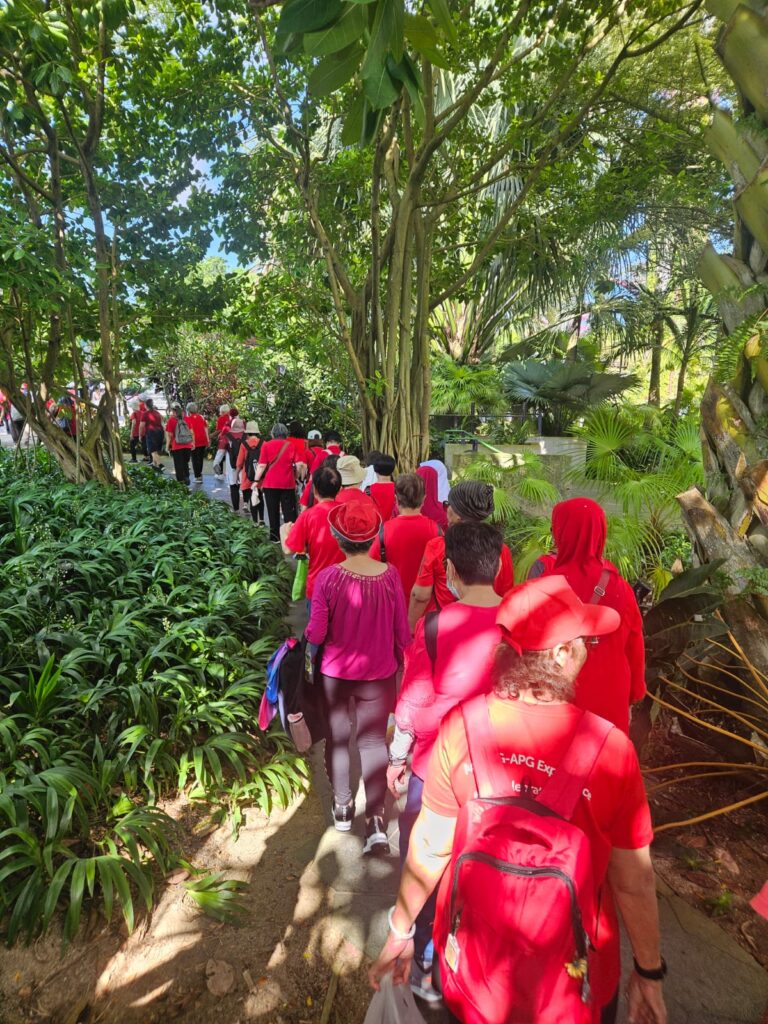
Therapeutic forest walking with Jurong Spring AWE participants.
Translating Research into Community Programmes
Mr Surein Sandrasageran, former Outreach Director at MSC and lead for the AWE programme, shared practical insights on how AWE translates research into sustainable community practice.
AWE is built on the principle of
“Active Ageing in the Community, by the Community, for the Community.”
This means the programme was designed from the start to be volunteer-driven, inclusive and adaptable to different neighbourhoods.
Surein explained that while each community has unique needs, sustainability requires a structured approach. To support this, MSC introduced a model where new classes begin with guidance from a master trainer. Over time, local volunteers are recruited and trained through the AWE volunteer training programme. Once volunteers complete their certification, responsibility for the sessions gradually shifts from trainers to the community itself. This approach helps to maintain quality standards while ensuring long-term sustainability across different centres.
He also emphasised the importance of inclusivity, accessibility and grassroots leadership, noting that adaptability and local ownership remain at the heart of AWE’s success.
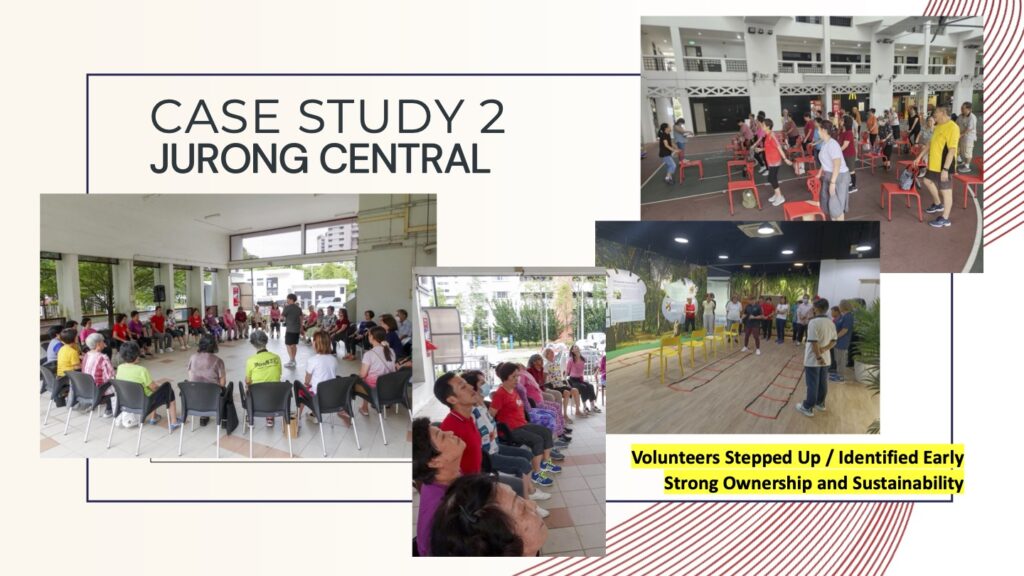
Mr Surein Sandrasageran shared about the Age Well Everyday (AWE) programme at Jurong Central as a case study. He highlighted early identification of suitable volunteers, strong ownership, and active involvement as key factors for a successful and sustainable AWE centre.
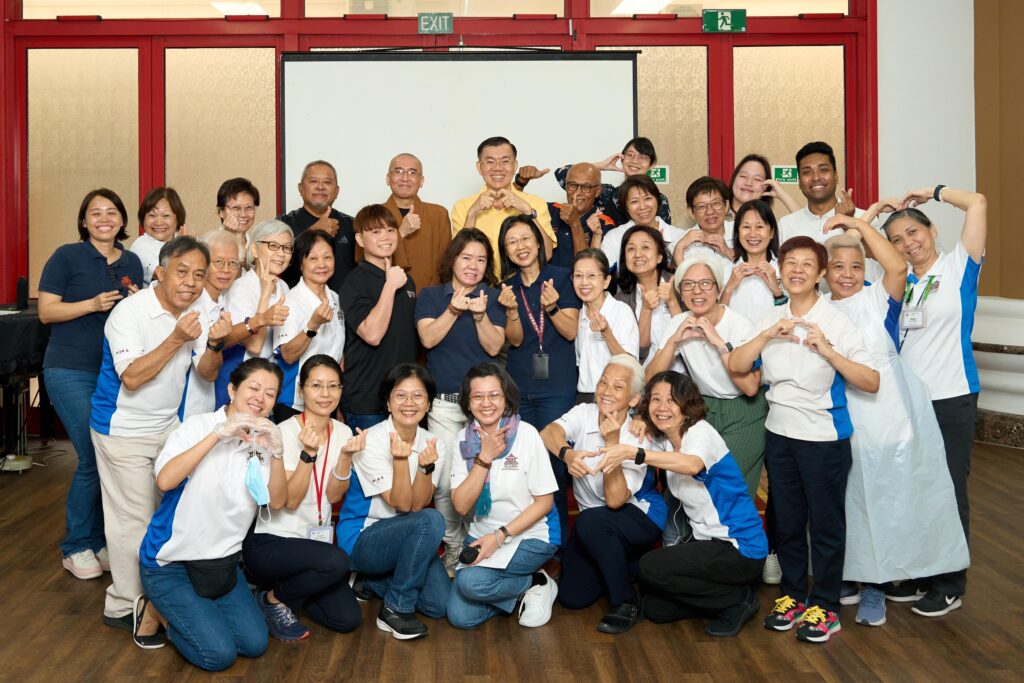
KMSPKS volunteers at the graduation ceremony for AWE participants.
Case Study: Kong Meng San Phor Kark See Monastery (KMSPKS)
KMSPKS was among the earliest adopters of AWE and today has one of the largest numbers of participants.
Ms Tricia Lim, team lead at KMSPKS, described how the temple launched its pilot Dementia Prevention Programme in 2016 with about 20 dedicated volunteers. Their AWE programme now offers five modules – Meridian Flapping, MAP, Health Education, Horticulture and Music – alongside excursions and graduation ceremonies.
In terms of resources needed to run AWE at KMSPKS, Tricia shared that a total of 10 volunteers are required to support the five modules, with each volunteer committing to a 12-week programme cycle. She highlighted the importance of pre-programme briefings and post-session debriefs to align expectations and improve teamwork. Volunteer retention remains a challenge, but a strong sense of purpose and shared mission helps sustain the effort.
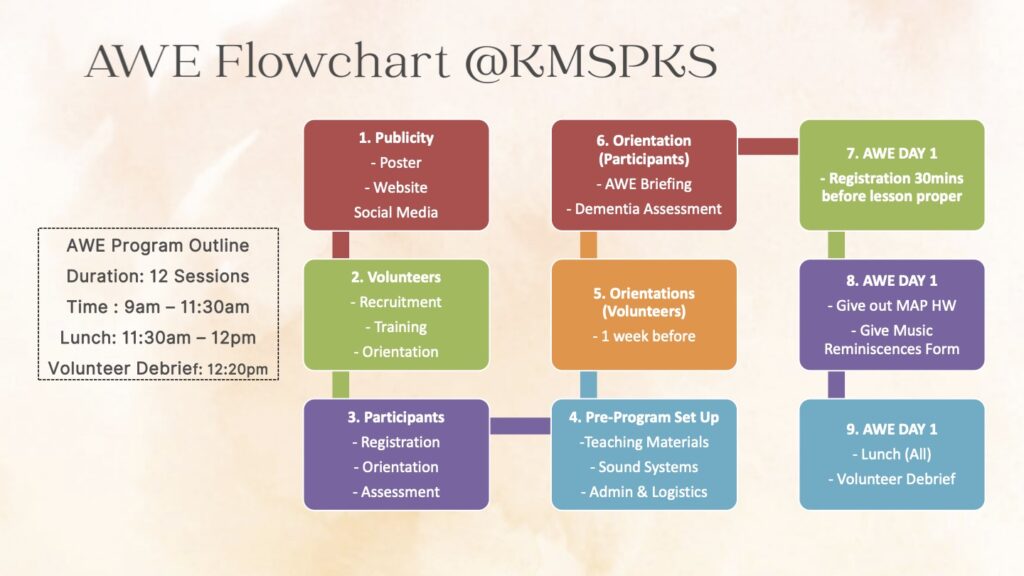
Ms Tricia Lim presented the programme outline for AWE at KMSPKS.
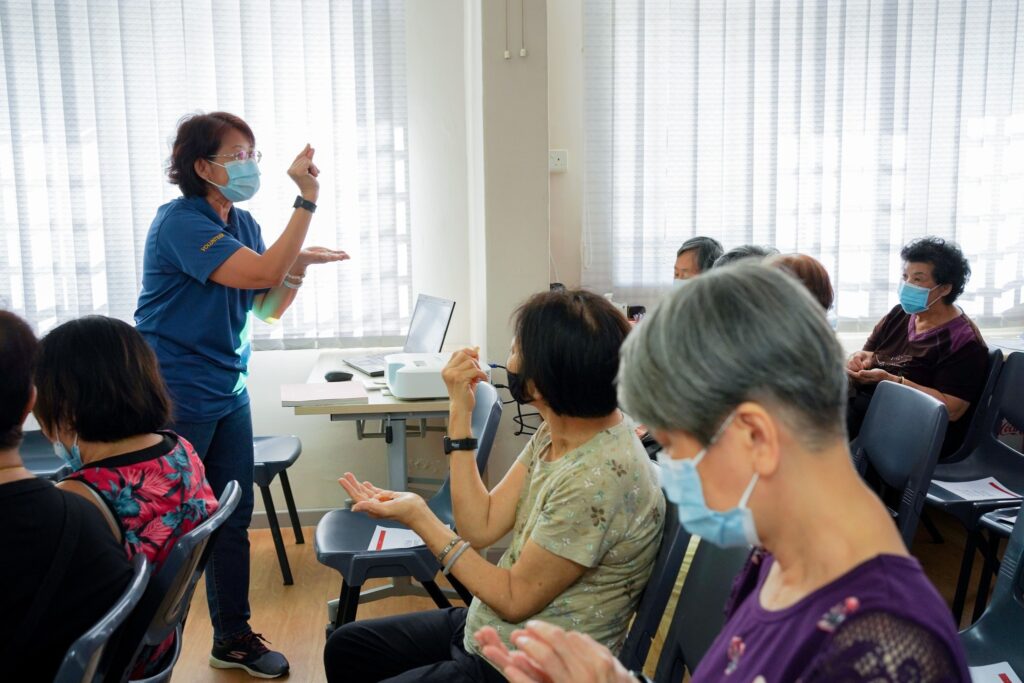
RSVP trainers educating participants on mindful eating.
Case Study: RSVP Singapore – Senior Volunteers in Action
RSVP Singapore, The Organisation of Senior Volunteers, joined the AWE journey in 2018. After attending Train-the-Trainer workshops and observation sessions with MSC, RSVP rolled out its first programme in 2019. Since then, it has reached over 500 participants, most in their 60s and 70s, and now has 20 trained instructors.
Ms Genevieve Chua, Chairperson of RSVP, explained their structured approach:
- Experience: Attend and observe existing AWE sessions to learn what works.
- Equip: Gain knowledge through training and workshops.
- Exercise: Practise delivery through rehearsals before engaging participants.
Their second phase focused on elevating quality, empowering instructors through refresher courses and enriching participants’ experience with community activities beyond core modules. Today, RSVP’s programme includes health education, mindfulness, music reminiscence and exercise activities.
Learn more about AWE programme at RSVP here.
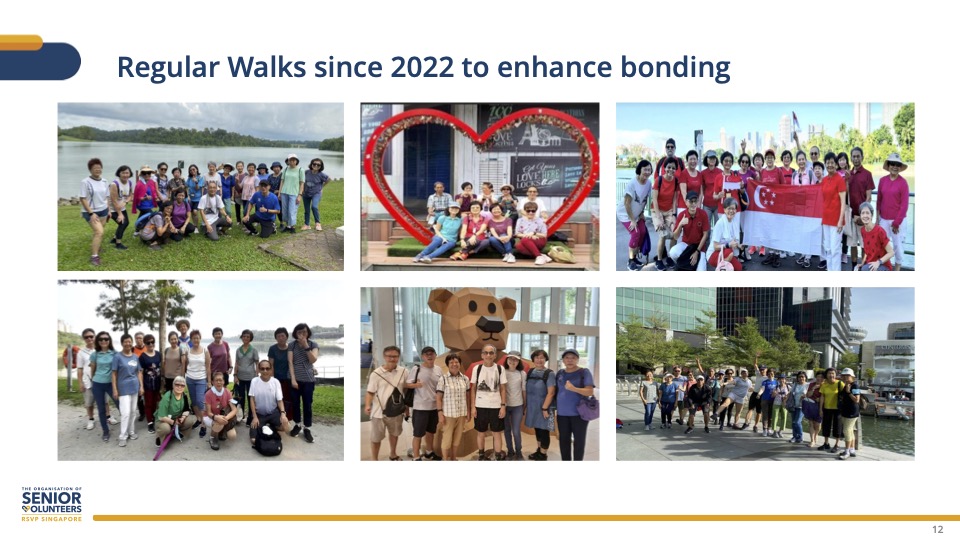
Ms Genevieve Chua shared about the centre’s regular walks since 2022 to strengthen bonds between participants and volunteers.
Related publication
Feng, L., Romero-Garcia, R., Suckling, J., Tan, J., Larbi, A., Cheah, I., Wong, G., Tsakok, M., Lanskey, B., Lim, D., Li, J., Yang, J., Goh, B., Teck, T. G. C., Ho, A., Wang, X., Yu, J. T., Zhang, C., Tan, C., Chua, M., … Kua, E. H. (2020). Effects of choral singing versus health education on cognitive decline and aging: A randomized controlled trial. Aging, 12(24), 24798–24816. https://doi.org/10.18632/aging.202374
Kua, E. H., & Mahendran, R. (2021). Migration, aging, and mental health. In D. Moussaoui, D. Bhugra, R. Tribe, & A. Ventriglio (Eds.), Mental health, mental illness and migration (pp. [page numbers]). Springer. https://doi.org/10.1007/978-981-10-2366-8_27
Kua, E. H. (2021). A dementia and depression prevention program in Singapore. Taiwanese Journal of Psychiatry, 35(4), 160–165. https://doi.org/10.4103/TPSY.TPSY_43_21
Kua, E. H., Mahendran, R., Feng, L., Tian, X., & Ng, T. P. (2013). Preventive psychiatry in late life: Studies on depression and dementia from the Singapore Gerontology Research Programme. Taiwanese Journal of Psychiatry (Taipei), 27(4), 267.
Rawtaer, I., Mahendran, R., Yu, J., Fam, J., Feng, L., & Kua, E. H. (2015). Psychosocial interventions with art, music, Tai Chi and mindfulness for subsyndromal depression and anxiety in older adults: A naturalistic study in Singapore. Asia-Pacific Psychiatry, 7(3), 240–250. https://doi.org/10.1111/appy.12201
Wu, D.-X., Feng, L., Yao, S.-Q., Tian, X.-F., Mahendran, R., & Kua, E. H. (2014). The early dementia prevention programme in Singapore. The Lancet, 1(1), 9–11.
FAQ
Mind Science Centre welcomes collaborations with partners interested in introducing AWE. Please contact Mae at maekng@nus.edu.sg to explore opportunities.
You can find a list of AWE community partners on our website: mindsciencecentre.sg/programmes/age-well-everyday-awe
Yes. Volunteers enrolled in the AWE training programme receive step-by-step guides and instructional videos. Training is coordinated through community partners, who set their own schedules. The list of partners is available here.
Volunteer training for the AWE programme is coordinated through our community partners, and each partner sets its own training schedule. You can find the list of partner centres here. If you are interested in becoming a volunteer, we encourage you to reach out directly to an AWE centre near your area.
